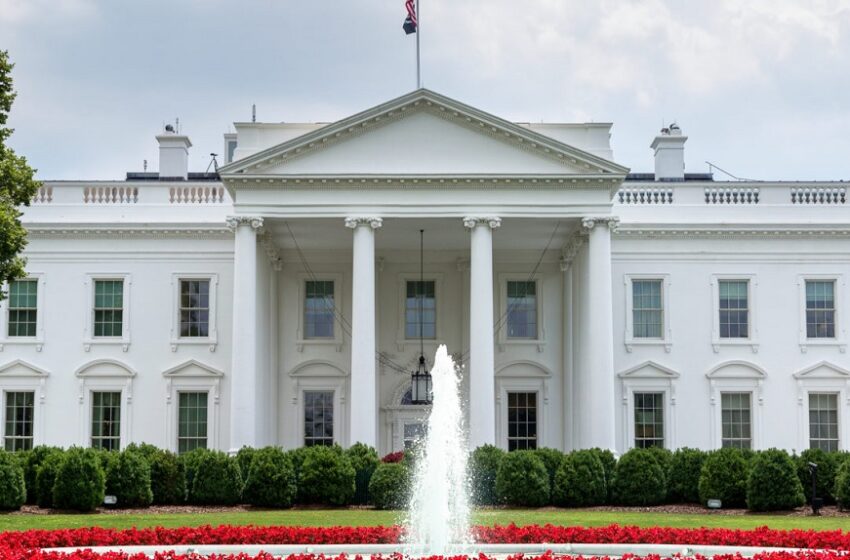As three Indian Americans vie for GOP presidential nomination, community weighs ideologies and policies

Photo by Joyce N. Boghosian/White House
Given the historic tilt of Indian Americans toward the Democratic Party, what does the presence of three Indian Americans for the GOP nomination for president indicate?
When New Jersey Republican Hirsh Vardhan Singh announced his intention to seek the Republican nomination for president, he became the third Indian American to enter the presidential race.
The other two Indian Americans vying for the GOP nomination are former South Carolina governor and former US Ambassador to the United Nations Nikki Haley and entrepreneur Vivek Ramaswamy.
Indian Americans make up slightly over 1 percent of the US population, with the number of registered voters among them being less than 1 percent.
READ: Hirsh Vardhan Singh becomes third Indian American to enter presidential race (July 28, 2023)
In recent years, multiple opinion polls have revealed that more Indian Americans identify with the Democratic Party.
A 2020 survey by the Carnegie Endowment for International Peace showed that Indian Americans solidly remained with the Democratic Party. The study also revealed that, at that time, 72 percent of registered voters planned to vote for then-Democratic nominee Joe Biden, while 22 percent planned to vote for the incumbent President Donald Trump in the November 2020 elections.
The study also revealed that a large section of Indian Americans refrains from identifying with the Republican Party and perceives the party to be intolerant of minorities.
READ: We need an outsider in the White House: Vivek Ramaswamy (July 11, 2023)
All five members of the Indian American congressional delegation are Democrats. Vice President Kamala Harris, the highest-ranking Indian American official, was serving as a US senator from California when Biden chose her as his running mate. She is also a Democrat.
However, it is widely believed that when Biden selected Harris as his vice-presidential choice, her African American heritage had a more significant influence than her Indian background. However, to her credit, Harris frequently points out her Indian heritage and acknowledges the influence of her Indian mother.
To begin with, the presence of three Indian American candidates for the GOP presidential nomination is not all that surprising. Indian American Republicans have run for several key offices across the nation in the recent past. In fact, the only two Indian Americans who have ever served as governors are Republicans: Bobby Jindal, who became the nation’s first Indian American governor of Louisiana in January 2008 and served in the position twice, and Nikki Haley, who was elected as the governor of South Carolina in 2011, becoming the second Indian American governor.
READ: Vivek Ramaswamy: from suspected vanity campaigner to a contender (May 10, 2023)
It is also worth noting that Jindal ran for president in 2016.
Nonetheless, given the historic tilt of the community toward the Democratic Party, what does the presence of three Indian Americans for the GOP nomination for president — of whom Ramaswamy and Haley are considered serious candidates by the conservative establishment and the media — indicate?
Will the emergence of a growing pool of Indian American Republicans vying for the highest office in the land force those community members in the middle to take a second look at the party?
Does it show that Indian Americans are already moving toward the Republican Party, as a few have claimed?
According to Pennsylvania resident Chanda Iyer, a candidate’s ethnicity or religion should not matter.
“So the reason for us to vote for, let’s say, Ramaswamy, would be that he is an Indian or a Hindu? In that case, I hope no one gets influenced by religion while voting. It is a poor choice to make while electing someone to the country.”
Many other Indian Americans say that they would not choose a politician just based on color or faith but would look if their ideologies and policies align with their values. If it does, they would definitely vote for any candidate.
Some Indian Americans say they are discouraged by the positions of the candidates like Ramaswamy and Singh.
Singh has referred to former President Trump as the “greatest President of his time” and has been likened to “Trump on Steroids.”
Similarly, Ramaswamy, an entrepreneur and author who proudly acknowledges his Hindu identity, has also embraced numerous positions advocated by Trump.
READ: Vivek Ramaswamy embraces American nationalist identity for 2024 race (June 7, 2023)
“Most of these candidates have extremist positions on many issues and at least two of them are hardcore Trumpists,” Prerna Rao, a Chicago resident, told The American Bazaar. “My vote is no from the start.”
IT professional Kumar Sah said, “I was reading about this Ramaswamy guy and found that he has spoken about pardoning Trump, who has some serious accusations including the mishandling of classified records at Mar-a-Lago as well as others. I would be skeptical from the word go when I hear these plans.”
READ: Vivek Ramaswamy wants to raise the voting age to 25 (May 12, 2023)
Bostonian Anil Pal from Boston said he is more inclined to back Haley out of the three in the Republican primary. “Out of the three candidates, Nikki Haley seems to be a better choice as she is center right among the Republican candidates,” he said.
There are also those who believe it is better to wait until these candidates prove their worth in the primaries.
“I think it’s early to assume that these candidates have any standing,” said Nitin Verma, who works for a San Francisco Bay Area start-up. “Let them win their party’s primaries first for the public to even consider them. Until then, they are just ambitious candidates.”
A slew of opinion polls conducted recently have consistently shown former Trump leading the pack by a wide margin, both nationally and in key states where the contest begins.
